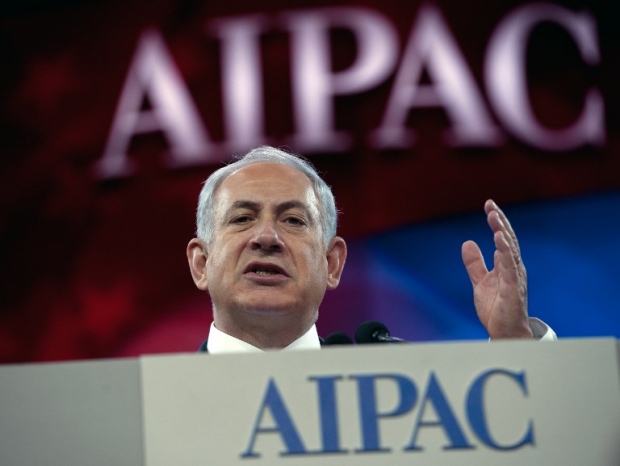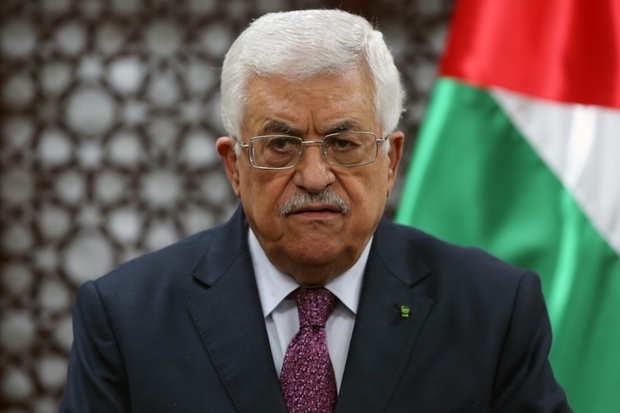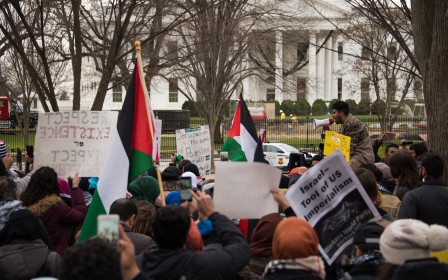Palestine, Israel and the US: Puppets and puppeteers

In 1956, Israel colluded with Britain and France to invade Egypt. In the course of the Suez War, Israel defeated the Egyptian army and captured the entire Sinai Peninsula all the way up to the Suez Canal.
David Ben-Gurion, Israel's prime minister, was drunk with victory. On 7 November, he proclaimed the establishment of the Third Kingdom of Israel, which incorporated the Sinai Peninsula and the Gaza Strip. Two days later, in an abrupt reversal of policy, he announced Israel's withdrawal.
Since its victory in the June 1967 war, in which Israel trebled its territory, the Jewish state has preferred land to peace with Palestinians
The reason for the reluctant retreat was strong pressure from the superpowers. The Soviet premier threatened rocket attacks and the deployment of volunteer forces to help the Egyptian army to deal with the tripartite aggression. President Dwight D Eisenhower issued an ultimatum: if Israel did not unconditionally withdraw, it would lose all aid from the United States and from American Jews and the US would not oppose Israel's expulsion from the UN.
The language of force
Eisenhower's principled stand by international law set a splendid example for dealing with the colonial powers as well as with America's expansionist junior ally. But this example was not followed by any of his successors. One reason for this was the emergence of an organised Israel lobby in the US in the aftermath of the Suez Crisis. In time, the American-Israel Public Affairs Committee, AIPAC, became the most powerful foreign affairs lobby in the US.
The specific thesis advanced by Thrall is that it is force - including but not limited to violence - that has impelled each side to make its largest concessions
Such is the power of the lobby that one commentator was moved to describe Capitol Hill as Israeli-occupied territory. This may be an exaggeration, but the reality is that as a result of the tremendous political clout wielded by the lobby, every president since Eisenhower has had to take into account the domestic consequences of putting pressure on Israel to compromise.
Israel ceased to be a foreign policy issue; it became an issue in American domestic politics.
Eisenhower and Suez is just one of the many examples cited by Nathan Thrall in The Only Language They Understand: Forcing Compromise in Israel and Palestine in which he argues that compromise in the Middle East is driven less by the promise of peace than the aversion of pain.
The focus of the book, as its subtitle makes clear, is not the entire Arab-Israeli conflict but only the conflict between its principal parties: Israel and the Palestinians. In this narrower context, the specific thesis advanced by Thrall is that it is force - including but not limited to violence - that has impelled each side to make its largest concessions, from Palestinian acceptance of a two-state solution to Israeli territorial withdrawals. In short, the only language that the two sides to the conflict understand is force.
By thwarting developments, like Palestinian democracy, that would disturb the status quo, American policy in effect sustains it
Nathan Thrall is one of the leading contemporary experts on the Israeli-Palestinian conflict. He is a senior analyst with the International Crisis Group, for which he has covered Israel, the West Bank and Gaza since 2010. He is a regular contributor to the New York Review of Books and the London Review of Books and is a frequent commentator in the print and broadcast media.
His book is somewhat fragmented because it incorporates earlier reportage and articles that were written at different times for different audiences.
Unusually for a book, each chapter ends with the date in which it was written. No clear timeline is available to help the reader follow what is an exceptionally tangled and twisted story. Nevertheless, the book is much more than a loose collection of essays. It is based on extensive research and the rich sources are meticulously documented in 82 pages of endnotes.
The book is also informed by a deep understanding of US, Israeli and Palestinian politics. It is packed with new ideas and insights, and it poses a serious challenge to the conventional wisdom on the subject.
The carcasses of peace plans
Thrall's claim to have upturned the conventional wisdom, however, needs to be qualified on at least two counts: his depiction of the conventional story, and the counter-history with which he seeks to replace it.
No one would deny that the landscape of the Middle East in the last 50 years is littered with the carcasses of peace plans, roadmaps, UN resolutions, international summits and secret negotiations. But there is no consensus among scholars on the reasons for the failure of these countless efforts at peacemaking. By the accounts of many diplomats, journalists and historians, says Thrall, these efforts were repeatedly thwarted by the use of violence, which destroyed the trust necessary for the two sides to reconcile.
If this is the conventional wisdom on the causes of failure, I am not part of it. In my view, the principal reason for the failure to end the conflict is not the Palestinian resort to violence but Israel's diplomatic intransigence. Since its victory in the June 1967 war, in which Israel trebled its territory, the Jewish state has preferred land to peace with Palestinians.
By signing the Oslo Accord in 1993, the PLO gave up its claim to 78 percent of historic Palestine in the expectation of ending up with an independent state in the West Bank and Gaza and a capital in East Jerusalem. But in the 24 years since Oslo, the occupation has become more entrenched and ever more oppressive.
Palestinian violence is largely a response to Israel's relentless encroachment on their land and systematic abuse of their human rights. To put it simply, Israel is the villain and the Palestinians are the victims. And it is both dishonest and immoral to blame the victims for their own misfortunes.
If Thrall's depiction of the conventional wisdom is too narrow, his counter-history encompasses too many factors. According to him, the history of these doomed efforts shows clearly that compromise on each side has been driven less by the promise of peace than the avoidance of pain.
Pain, in Thrall's definition, has not been limited to bloodshed. Economic sanctions, boycotts, threats, unarmed protest and other forms of confrontation are all included in his panoply of effective pressures. All of them are said to help in exacting from the protagonists ideological concessions and territorial withdrawal. "Force" in this broader sense, the author maintains, has sadly proved the only language "they" understand.
Wedded to the status quo
The strongest piece of evidence put forward by Thrall in support of his thesis about the efficacy of force in this broader sense comes from president Jimmy Carter's engagement with the Arab-Israeli conflict. Chapter 1, entitled "Forcing Compromise," leads with a detailed account of Carter's initiative in convening the Camp David summit in September 1978 and brokering the Israeli-Egyptian peace treaty the following year.
Carter wrote in his diary: "My own judgment at this time is that the Arab leaders want to settle it and the Israelis don't"
As a matter of fact, little pressure was needed to persuade president Anwar Sadat of Egypt to push forward with the peace plan. Soon after succeeding Gamal Abdel Nasser as president in 1970, Sadat offered Israel total peace for total withdrawal. But Israel was wedded to the status quo.
Sadat proposed an interim agreement based on a partial withdrawal, but this too was rejected. Israel's policy was to maintain the status quo, but this status quo was intolerable to the Arabs. So Egypt and Syria launched the October 1973 war with the limited objective of shaking up the status quo and recovering at least some of their occupied territory.
At the end of Sadat's state visit to Washington in April 1977, Carter told his wife: "This has been my best day as president." Several weeks later, he wrote in his diary: "My own judgment at this time is that the Arab leaders want to settle it and the Israelis don't."
Sadat readily accepted the invitation to a summit conference with prime minister Menachem Begin at the presidential retreat at Camp David. His main aim was to recover the Egyptian land that Israel had captured in the June 1967 war, and now he insisted on recovering every inch of it. But he was equally clear that he was not going to Camp David to make a separate deal with Israel. His other aim was to get Israel to withdraw from the occupied Palestinian territories.
The Palestinian question, he repeatedly stated, was the crux of the Middle East conflict. "Peace," he stated, "cannot be worth its name unless it is based on justice and not on the occupation of the land of others."
Menachem Begin, for his part, had profound reservations about the formula of land for peace, especially on the eastern front. He was the leader of the right-wing Likud Party, an ideological party dedicated to Greater Israel. Begin and his party regarded the West Bank - Judea and Samaria in their preferred terminology - as an integral part of "the Land of Israel," the ancestral Jewish homeland.
The Sinai Peninsula is not part of the Land of Israel, so there was some room for compromise, but even here Begin was expected to be a very tough negotiator. Nahum Goldmann, the president of the World Jewish Congress, urged the administration to bear down on Israel. "The Jews are a very stubborn people," he said. "That is why they have survived, but they must often be forced to do what is in their own best interest."
Palestinian autonomy 'to collect their own garbage'
At Camp David, Carter followed Goldmann's advice. He applied the most intense and relentless pressure on Begin to secure his agreement to a complete Israeli withdrawal to the pre-1967 lines as the price for peace with Egypt.
On the Palestinian front, however, Begin withstood all the pressure that Carter and Sadat brought to bear on him. To deflect the pressure, Begin came up with a proposal that Israel abolish its military government and establish a Palestinian self-governing authority for the West Bank and Gaza. This was the basis for the second agreement concluded at Camp David: the "Framework for Peace in the Middle East."
This second agreement was not finalised or implemented in Carter's time. It was the subject of protracted negotiations between Israel and Egypt which led nowhere slowly.
The Palestinians were not represented in these bilateral negotiations, nor were they consulted. From the sidelines, however, they rejected Begin’s autonomy plan out of hand as autonomy "to collect their own garbage and swat their own mosquitos".
The fundamental flaw in this plan was that autonomy applied only to people and not to the land. Israel had already annexed East Jerusalem and it refused to abandon its claim to sovereignty over the West Bank and Gaza. The most that Begin was prepared to concede was to keep in abeyance Israel's claim to sovereignty over the West Bank and Gaza during the transition period to Palestinian self-government. In the absence of an agreement, the status quo persisted with undiminished Israeli economic, political and military control of the occupied territories.
Egypt was by far the most powerful of the Arab confrontation states, and once it was removed from the circle of hostility, no other Arab state or coalition of states could endanger Israel
Thrall showers praise on Carter for his success in forcing compromise on all sides to the conflict through the Camp David process. This verdict needs to be qualified by recognising that the Camp David Accords left the core of the conflict intact. Both Carter and Sadat hoped that the peace treaty between Israel and Egypt would be the first step towards an overall settlement of the conflict.
Begin, however, regarded it as a standalone treaty. It was even worse than that. Begin believed that by relinquishing Sinai, Israel gained a free hand to consolidate its control and to build more Jewish settlements in the West Bank. He went to Camp David with the objective of a separate peace with Egypt and this is what he actually achieved.
Egypt was by far the most powerful of the Arab confrontation states, and once it was removed from the circle of hostility, no other Arab state or coalition of states could endanger Israel. Egypt's defection removed the threat to Israel of another war against a united Arab front. As foreign minister Moshe Dayan told Carter: "If you take one wheel off the car, it won't drive."
In 1982, the second Begin government exploited Egypt's disengagement from the conflict to launch an invasion of Lebanon.
Skeptics, reproachers and embracers
Looking more broadly at the last two-and-a-half decades, Thrall divides American officials involved in the peace process - as well as the think-tanks, NGOs, advocates, journalists and analysts who seek to influence them - into three groups.
The first and smallest group, which he calls the Skeptics, consists of conservatives and neoconservatives who believe that the Arabs would not make peace with Israel on terms acceptable to its centre-right majority. Prominent in this camp are senior officials in the George W Bush administration like Elliott Abrams, the more hawkish parts of AIPAC, the American Enterprise Institute, the Weekly Standard, Commentary, and the editorial board of the Wall Street Journal.
The Skeptics tend to consider negotiations not simply as a waste of time but dangerous because failure often leads to Palestinian violence, as it did with the outbreak of the Second Intifada in September 2000. Because of their antipathy to top-down negotiations, they have focused instead on bottom-up changes, most notably Salam Fayyad’s project of Palestinian reform and institution building.
The second group, which Thrall calls Reproachers, advocates a more activist approach towards negotiations. They believe that the conflict could be resolved if the US were to put sufficient pressure on Israel. They seek to be more balanced mediators, they forcefully criticise Israeli settlement expansion, and they wish to dedicate greater effort to final-status talks.
Reproachers are critical of themselves and of other American officials for having acted, in the words of former State Department official Aron David Miller, as "Israel's lawyer". Prominent people and institutions associated with the second school are George Mitchell, Barack Obama's Middle East envoy; Foreign Service officers in the US consulate in Jerusalem; Americans for Peace Now; J Street; and the editorial board of the New York Times.
In the absence of pressure, Reproachers argue, Israelis will continue to prefer the status quo to the principal alternatives. Reproachers aim to act with "tough love" to help Israel achieve what they believe is in its own interest. Past efforts have failed, they argue, not because the maximum Israelis will concede is less than the Palestinians will accept, but because the US has not been bold enough in bridging the differences.
Embracers, Thrall's third and most influential group, combine the Skeptics' unconditional support for Israel with the Reproachers unwavering faith in the peace process. Institutions associated with the Embracer school include the Anti-Defamation League, the more moderate parts of AIPAC, the US Embassy in Tel Aviv, and the editorial board of The Washington Post.
Embracers, like Reproachers, believe that US involvement is necessary to achieving an agreement, yet they argue that this goal can only be attained by embracing Israel tightly. Strong American support is said to be essential to give Israel the confidence to make the sacrifices and run the risks involved in negotiating a two-state solution.
US acting as Israel's lawyer
The obvious flaw in this argument is that Israel can enjoy all the benefits of unconditional American support while persisting in its diplomatic intransigence vis-a-vis the Palestinians. This is precisely what happened during the eight years of Bill Clinton's presidency. Clinton was passionately attached to Israel. Ha'aretz, Israel's most respected newspaper, called him "the Last Zionist".
Dennis Ross, a committed Jew and an ardent Zionist, headed Clinton's team of peace processors. Ross put into practice the Embracers' approach by working closely with Israel, offering endless incentives, and applying virtually no pressure. In the end, he had absolutely nothing to show for his efforts on either the Palestinian or the Syrian tracks. His career demonstrates the perils and pitfalls of the Embracer school of thought.
Despite tactical differences, there is much common ground among the three schools. On questions of broader significance, as Thrall observes, their opinions largely overlap.
All three groups favour a two-state solution, the retention by Israel of the large settlement blocs in the West Bank, and a Palestinian capital in some part of East Jerusalem. All wish to deny the right of return to more than a token number of 1948 refugees and to offer only modest financial compensation to the rest.
And all three groups back the Israeli demand to place severe restrictions on the sovereignty of a future Palestinian state, with limits on armaments, Israeli control of borders and airspace, and the stationing of Israeli troops on its territory for a considerable period.
A solution along these lines is clearly unacceptable even to the most moderate Palestinian leaders, let alone the wider public. The proposals on refugees are particularly problematic because they have no hope of enlisting the support of the refugees who make up the majority of the Palestinians worldwide and roughly 45 percent of the population of the West Bank and Gaza. Given the distinct pro-Israeli bias of these proposals, it is no wonder that Palestinians view the US not as an honest broker in the dispute but as Israel's lawyer.
Yet the relationship between the American lawyer and its Israeli client is anything but straightforward. Israel is dependent on America for economic and military aid as well as for diplomatic protection, yet it retains a remarkable capacity to resist American pressures to compromise.
The reason for this strange state of affairs is that American support for Israel, at least since the days of Lyndon Johnson, is unconditional. America gives Israel money, arms and advice. Israel takes the money and the arms but ignores the advice.
Nothing illustrates this better than the issue of Israeli settlements on occupied Palestinian territory. Since 1967, the official American position has been that these settlements are illegal and an obstacle to peace. In fact, these settlements are the main and the most insurmountable obstacle to peace - for the more land Israel gobbles up, the dimmer the prospect for a viable, territorially contiguous Palestinian state.
Freezing settlement activity
Yet no US president has ever conditioned aid on a complete freeze of Israeli settlement expansion.
Barack Obama rightly identified a freeze on settlement activity as indispensable to progress towards a two-state solution. In his first term, Obama confronted Prime Minister Benjamin Netanyahu three times on this issue, but each time it was the president who backed down. Eventually Obama gave up and delegated the thankless task of dealing with the Israelis to secretary of state John Kerry.
This self-inflicted impotence by the world's greatest superpower in front of Israel's intransigence is indeed astonishing
Kerry brought unprecedented energy and commitment to what he saw as the imperative need to save Israel as a Jewish and democratic state in spite of herself. But eventually, he too was defeated by Netanyahu’s dogged defence of the status quo. Since April 2014, there have been no Israeli-Palestinian peace talks and no American mediation.
This self-inflicted impotence by the world's greatest superpower is indeed astonishing. Listening to American officials discuss an end to occupation, remarks Thrall, is like listening to the operator of a bulldozer ask how to demolish a building with a hammer.
Not only has America failed to bring to bear effective pressure to end the occupation, it has also consistently sheltered Israel from accountability for its policies in the West Bank by putting up a facade of opposition to them. Both the US and the European Union draw a sharp distinction between Israel and the occupied territories, refusing to recognise Israeli sovereignty beyond the pre-1967 lines. Israel rejects this distinction, claiming that it delegitimises both the state and the settlements.
But as Thrall notes, differentiation only creates the illusion of American pressure on Israel. In practice, it ensures that only the settlements and not the government that creates them will face the consequences for multiple violations of international law.
The same can be said about the US-sponsored peace process that got underway in the aftermath of the 1991 Gulf War. From the point of view of the Palestinians, this has been all process and no peace in the sense of an end of occupation, leading to independence and statehood. Judged by its concrete results, this peace process is a charade, but a charade that serves Israel's interests. Holding peace talks creates the illusion of progress while giving Israel just the cover it needs to pursue its aggressive and illegal colonial project beyond its borders.
Western double standards
Moreover, the US has played a major part behind the scenes in turning the Palestinian Authority (PA) into a subcontractor for Israeli security in the occupied territories. After the end of the Second Intifada, in early 2005, the Bush administration created a programme that used US advisers to transition the Palestinian security forces from sometimes fighting Israel to cooperating closely with it.
Lieutenant General Keith Dayton was appointed as security coordinator for Israel and the PA. In January 2006, Hamas, the Islamic Resistance Movement, defeated Fatah in fair and free parliamentary elections. Israel refused to recognise the democratically elected Palestinian government and so did the US and the 28 members of the EU.
For the United States the potential benefits of creating a small, poor and strategically inconsequential Palestinian state are tiny compared with the cost of falling out with a powerful regional ally
This was a striking example of Western double standards. In theory, the Western powers supported democracy, but in practice they rejected the verdict of the people when the people voted for the wrong party. Israel and its Western allies resorted to economic sanctions to bring the new government to its knees.
Dayton's mission changed overnight from reforming the Palestinian security forces to preventing the Hamas-led government from controlling them. Dayton advised Mahmoud Abbas, the leader of Fatah, to issue presidential decrees to limit the new government’s rule, particularly over the security forces. Hamas reacted by establishing a security force of its own. During the next year, Hamas and Fatah engaged in a series of violent clashes.
In February 2007, on the brink of a civil war, the leaders of the two warring parties travelled to Mecca and, with the help of Saudi mediators, reached an agreement to form a national unity government. The US and Israel were opposed to this deal and pressed Fatah to continue to isolate Hamas.
Alvaro de Soto, the distinguished Peruvian diplomat who had been the UN envoy to the Quartet, wrote in a confidential "End of Mission Report" that the violence between Hamas and Fatah could have been avoided had the US not strongly opposed Palestinian reconciliation. "The United States," he wrote, "clearly pushed for a confrontation between Fatah and Hamas." The upshot was a violent Hamas seizure of power in Gaza in June 2007 to pre-empt a Fatah coup. Since then, Hamas has ruled Gaza and the Fatah-dominated PA has ruled the West Bank.
The war on Gaza
The greatest damage to the reputation of the Palestinian security forces occurred during Operation Cast Lead, the Israeli attack on Gaza in December 2008-January 2009. These forces rounded up Hamas activists in the West Bank and brutally suppressed pro-Hamas demonstrations.
The trust between Israeli and Palestinian forces was so great, Dayton claimed, that "a good portion of the Israeli army went off to Gaza". There was more protest against the war in Israeli Arab cities than in the West Bank. Avigdor Lieberman, a far-right minister, later said that "Mahmoud Abbas himself called and asked us to continue the military campaign and overthrow Hamas".
Following the war in Gaza, Dayton gave a talk in Washington in which he boasted of his mission's accomplishments: building a force that worked against Hamas and cooperated with Israel in its attack on Gaza. These comments did not go down well in Palestine, where they reinforced the image of Mahmoud Abbas as the puppet and the US and Israel as the puppeteers. Palestinian human rights groups criticised Dayton for his part in training agents not just in the use of weapons but in internal repression and in helping to turn the West Bank into a police state.
In 2011, Lieutenant General Michael Moeller replaced Dayton as the security coordinator for Israel and the PA. His task, says Thrall, was to advance two irreconcilable goals: "... building a Palestinian force that could guarantee Israeli security while, at the same time, lessening the perception that the United States was firmly supporting what many residents of the West Bank, like the independent politician Mustafa Barghouti, had come to describe not as one occupation but two".
Ironically, the main conclusion that emerges from Nathan Thrall's account is that Israel does not understand the language of force. On the contrary, Israel is a past master in manipulating American resources to exact concessions and compliance from the Palestinian leadership.
Equally depressing is his prediction that both Israel and the United States are unlikely to depart from their commitment to the status quo. Israel has consistently opted for stalemate rather than a two-state solution. The reason is obvious: the cost of a deal is higher than the cost of no deal. For the United States the potential benefits of creating a small, poor and strategically inconsequential Palestinian state are tiny compared with the cost of falling out with a powerful regional ally.
Deterring democracy
By thwarting developments, like Palestinian democracy, that would disturb the status quo, American policy in effect sustains it. Deterring democracy, to use Noam Chomsky's phrase, would in fact be an apt description of America's policy towards Palestine. Israel prides itself on being an island of democracy in a sea of authoritarianism. Its record, however, reveals that it has done nothing to promote democracy in the Arab world and a great deal to undermine democracy in Palestine.
It has often been pointed out that the asymmetry of power between Israel and the Palestinians is so great that a voluntary agreement between the two sides is unattainable: Israel is too strong and the PA is too weak. A third party is needed to redress the balance, to push Israel into a settlement.
America is that self-appointed third party. In the aftermath of the Six-Day War, America arrogated to itself a monopoly over the diplomacy surrounding the Arab-Israeli conflict. Its solitary success has been the peace between Israel and Egypt.
On the Palestinian track, America has repeatedly failed to push Israel into a settlement. Indeed, in many ways, as this book demonstrates, America has added its weight to the Israeli side of the scales, thereby accentuating the imbalance and deepening Palestinian hopelessness.
This important book appears as the Israeli occupation of Palestine enters its 50th year. Palestine has always been and remains the core of the Arab-Israeli conflict. By assuming a diplomatic monopoly and excluding the UN and other actors, the US has become the critical external power in this tragic conflict.
That the Palestinians are the puppets in the triangular setup is hardly open to doubt. The more difficult question to answer is: who is the ultimate puppeteer? Is it the United States of America or Israel?
The Only Language They Understand: Forcing Compromise in Israel and Palestine, by Nathan Thrall is published by Metropolitan Books, May 2017
Avi Shlaim is an emeritus professor of International Relations at Oxford and the author of The Iron Wall: Israel and the Arab World.
The views expressed in this article belong to the author and do not necessarily reflect the editorial policy of Middle East Eye.
Photo: A poster showing portraits of Israeli Defence Minister Avigdor Lieberman, Israeli Prime Minister Benjamin Netanyahu, Palestinian President Mahmoud Abbas and Palestinian Prime Minister Rami Hamdallah covered in footprints is seen during a protest against the blockade on Gaza in 2017 (AFP)
New MEE newsletter: Jerusalem Dispatch
Sign up to get the latest insights and analysis on Israel-Palestine, alongside Turkey Unpacked and other MEE newsletters
Middle East Eye delivers independent and unrivalled coverage and analysis of the Middle East, North Africa and beyond. To learn more about republishing this content and the associated fees, please fill out this form. More about MEE can be found here.








